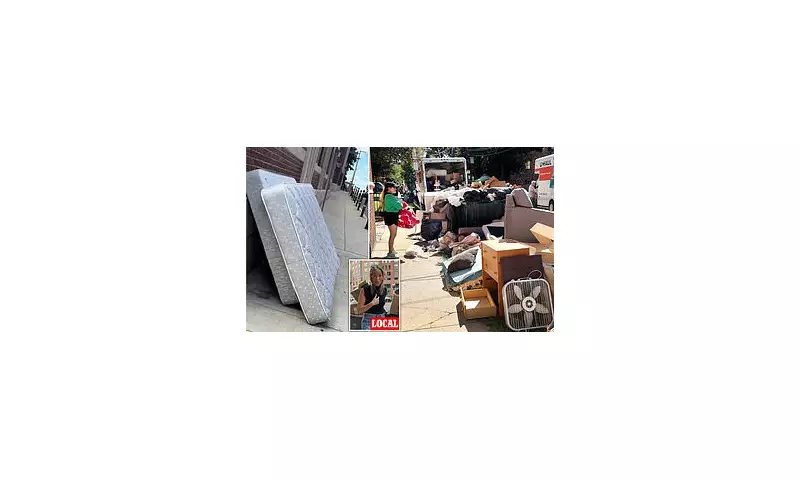
Boston's quirky annual tradition, known as 'Allston Christmas', has spiralled into a full-blown public health crisis, exposing the stark consequences of the city's permissive waste management policies. The first of September, typically a day of moving mayhem as students flood into the city, has instead become a spectacle of squalor, with pavements transformed into impromptu landfills.
The city's liberal approach, which allows residents to abandon unwanted items on the curb for collection, has backfired spectacularly. Instead of orderly piles, neighbourhoods like Allston and Brighton are now buried under mountains of rotting sofas, broken electronics, and mouldy mattresses. The stench is overwhelming, and the visual blight is a stark contrast to Boston's historic charm.
A City Buried in Its Own Waste
The scale of the problem is unprecedented. Residents report navigating obstacle courses of discarded possessions, while local businesses fear the detritus will drive customers away. The situation is not merely an eyesore; it poses a significant health risk, attracting vermin and creating potential hazards for children and pedestrians.
Despite by-laws against such dumping, enforcement appears lax. Critics argue that the city's administration, often praised for its progressive values, has failed in its most basic duty: to keep public spaces clean and safe. The message being sent is one of neglect, where temporary convenience trumps communal responsibility.
The High Cost of 'Free' Disposal
While the city offers a 'free' collection service, the true cost is being paid by the residents who must live amidst the garbage. The policy, intended to be helpful, has inadvertently incentivised mass fly-tipping on a scale that city services cannot hope to manage efficiently. The result is a lingering mess that stains neighbourhoods for weeks.
This year's event has ignited a fierce debate. Is this a harmless, if messy, tradition or a glaring indicator of failed municipal policy? For many beleaguered locals, the piles of trash are a potent symbol of a city that talks a good game on sustainability and community but cannot handle the practical reality of its own waste.





